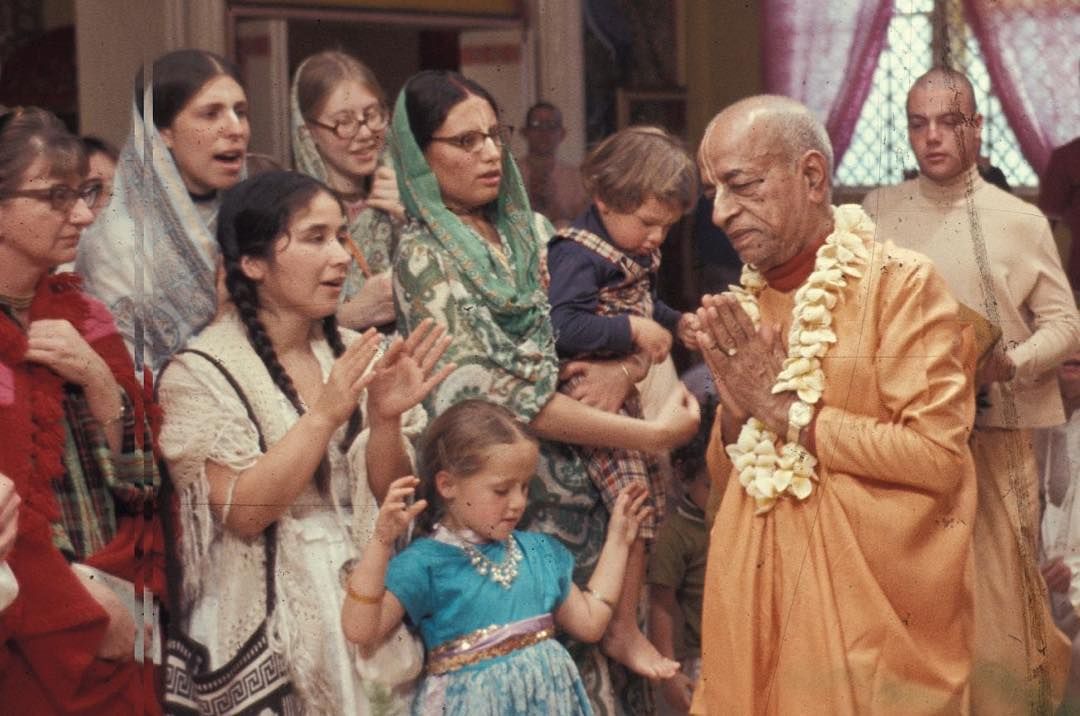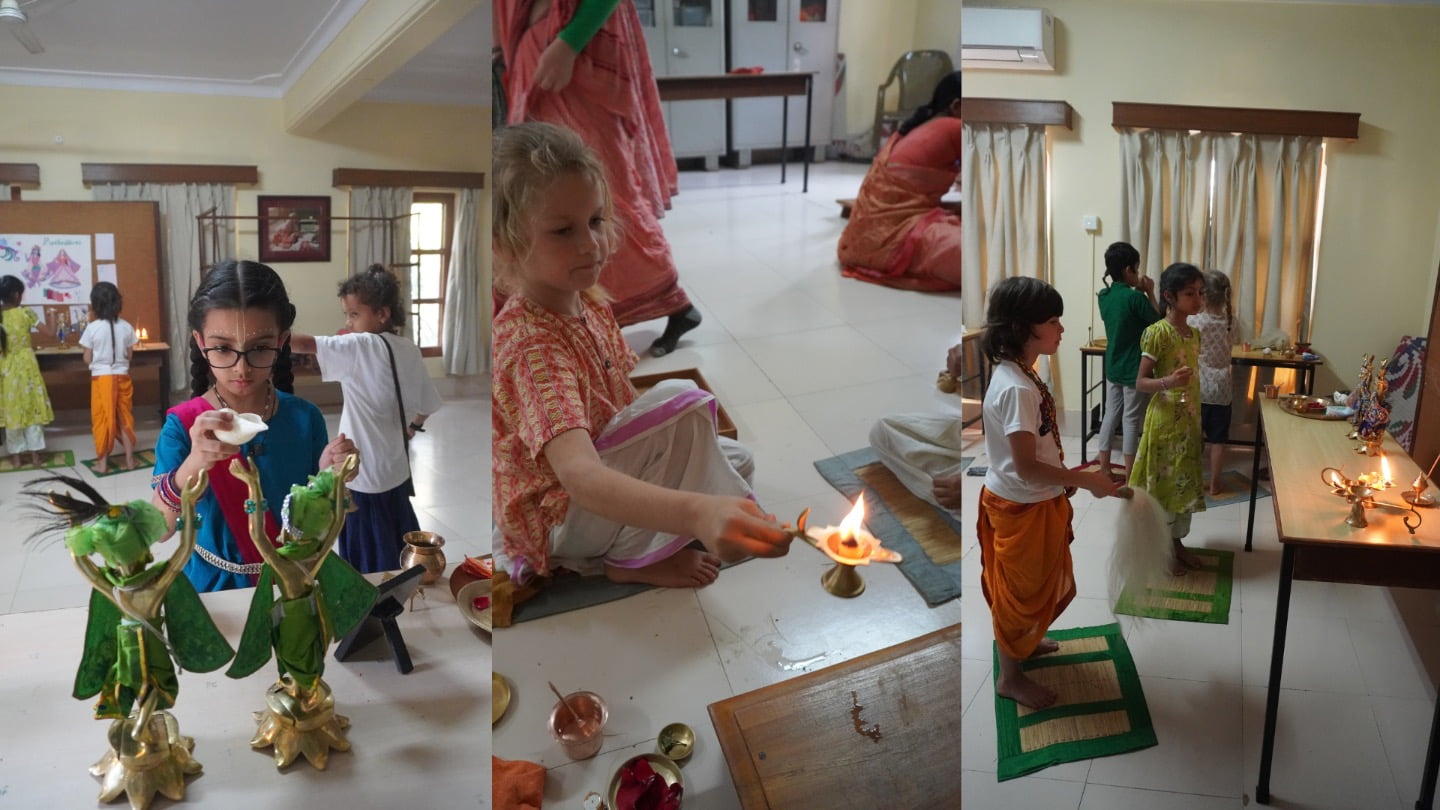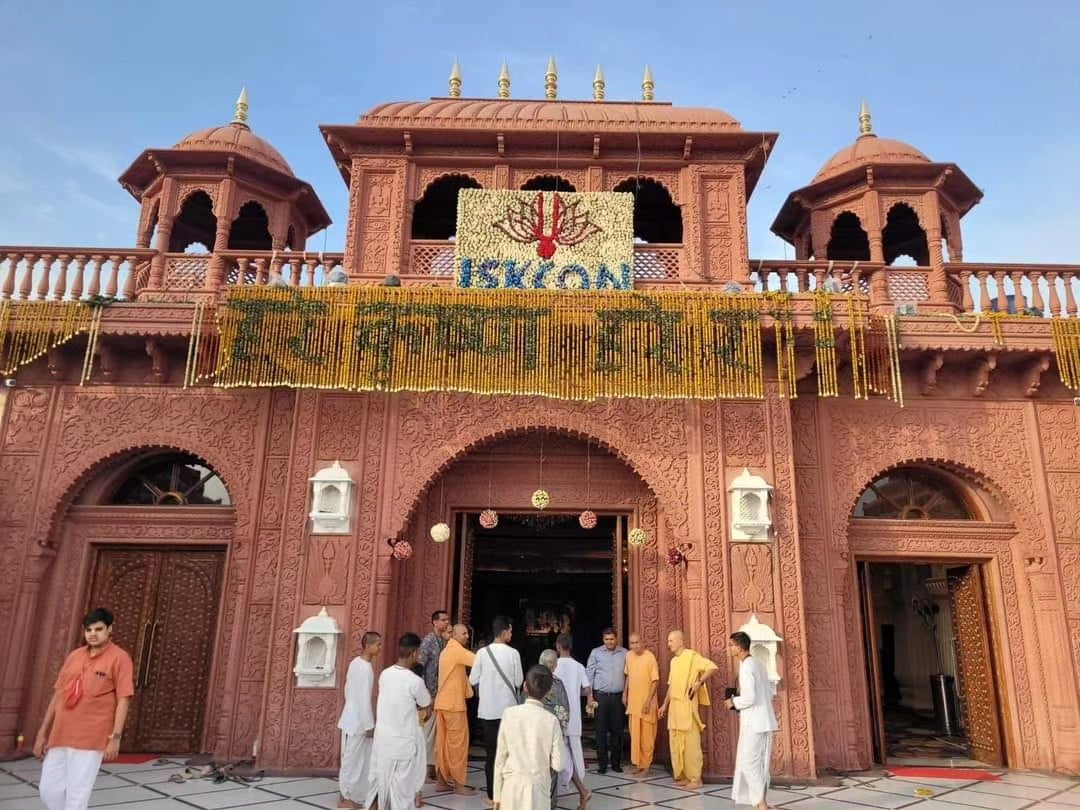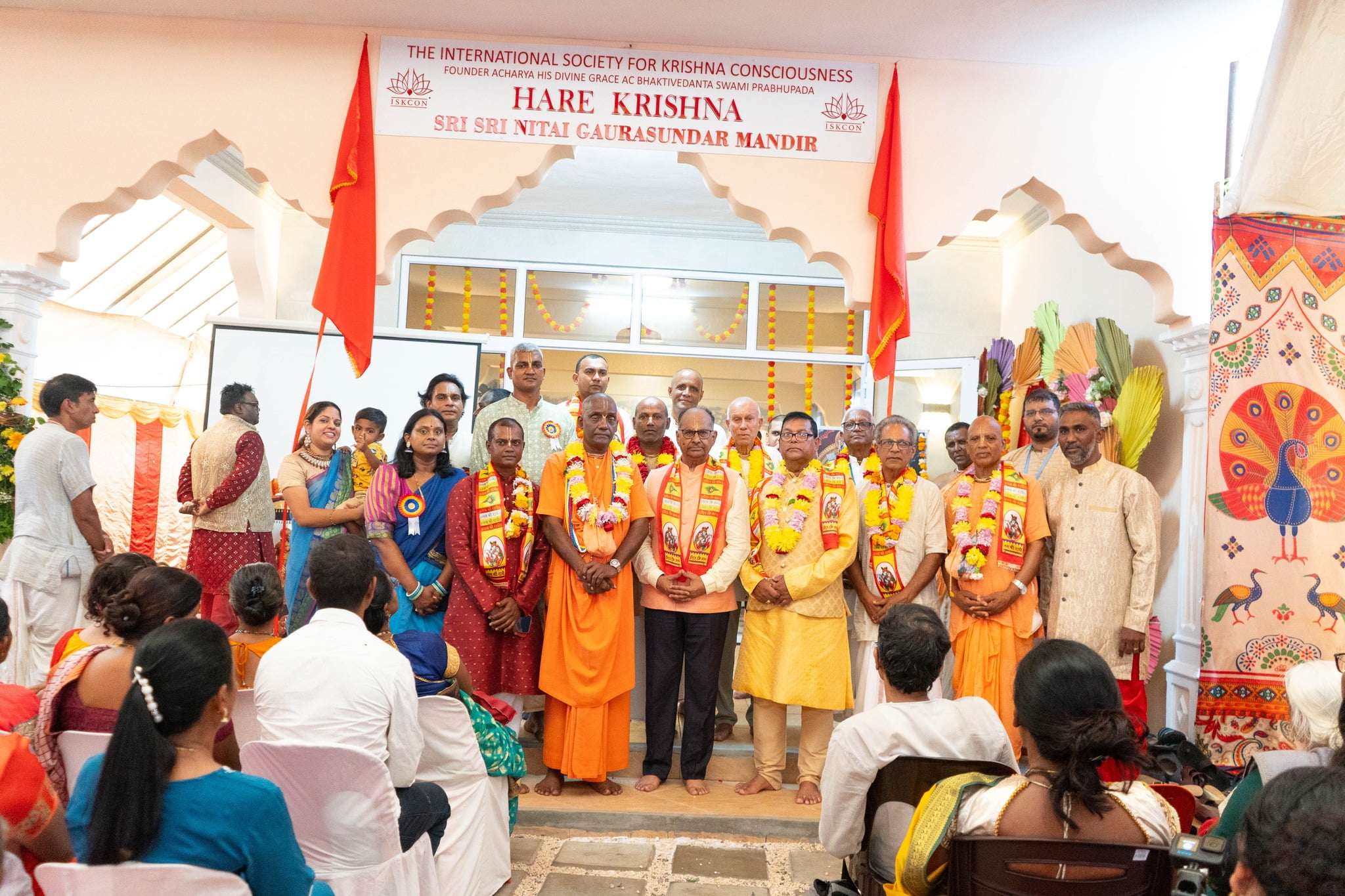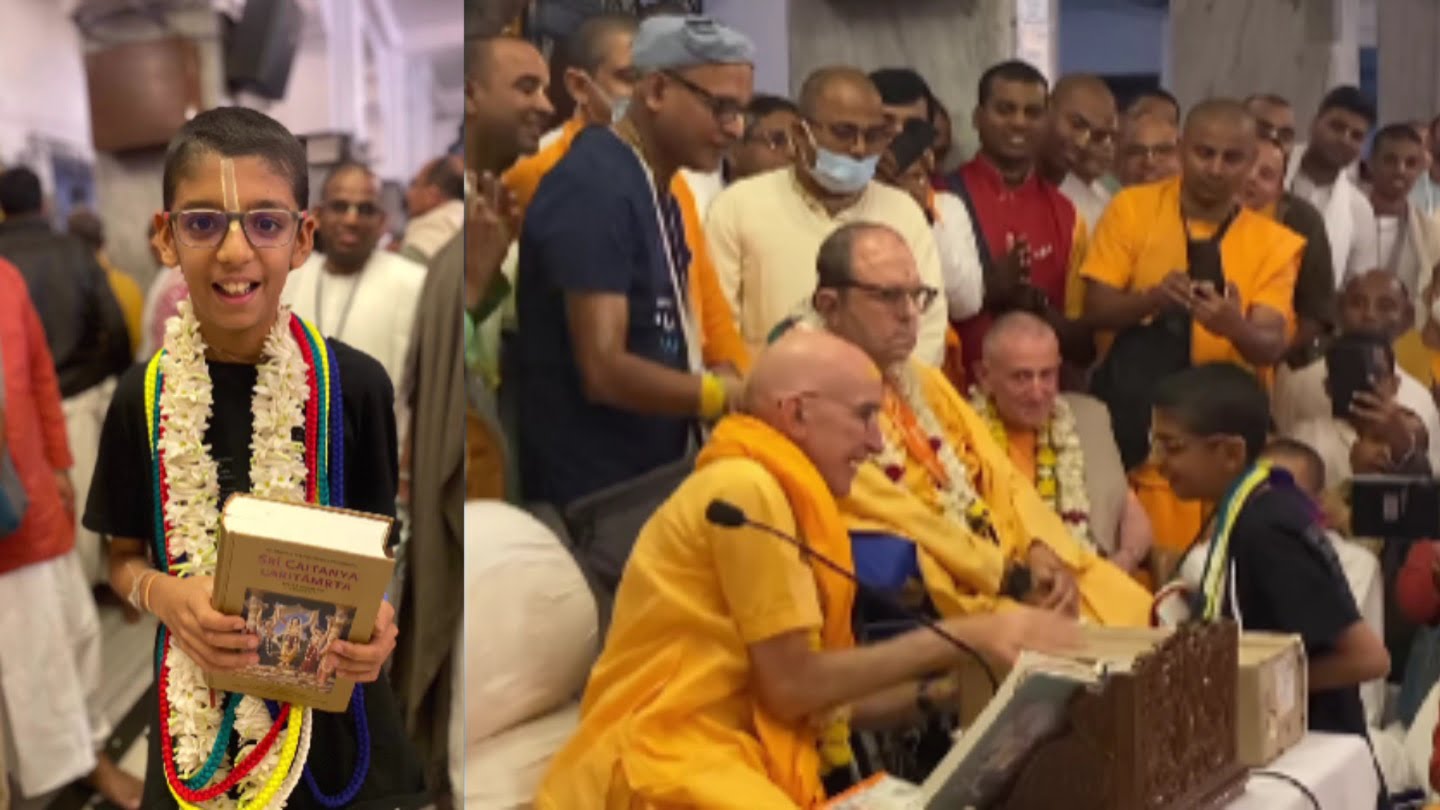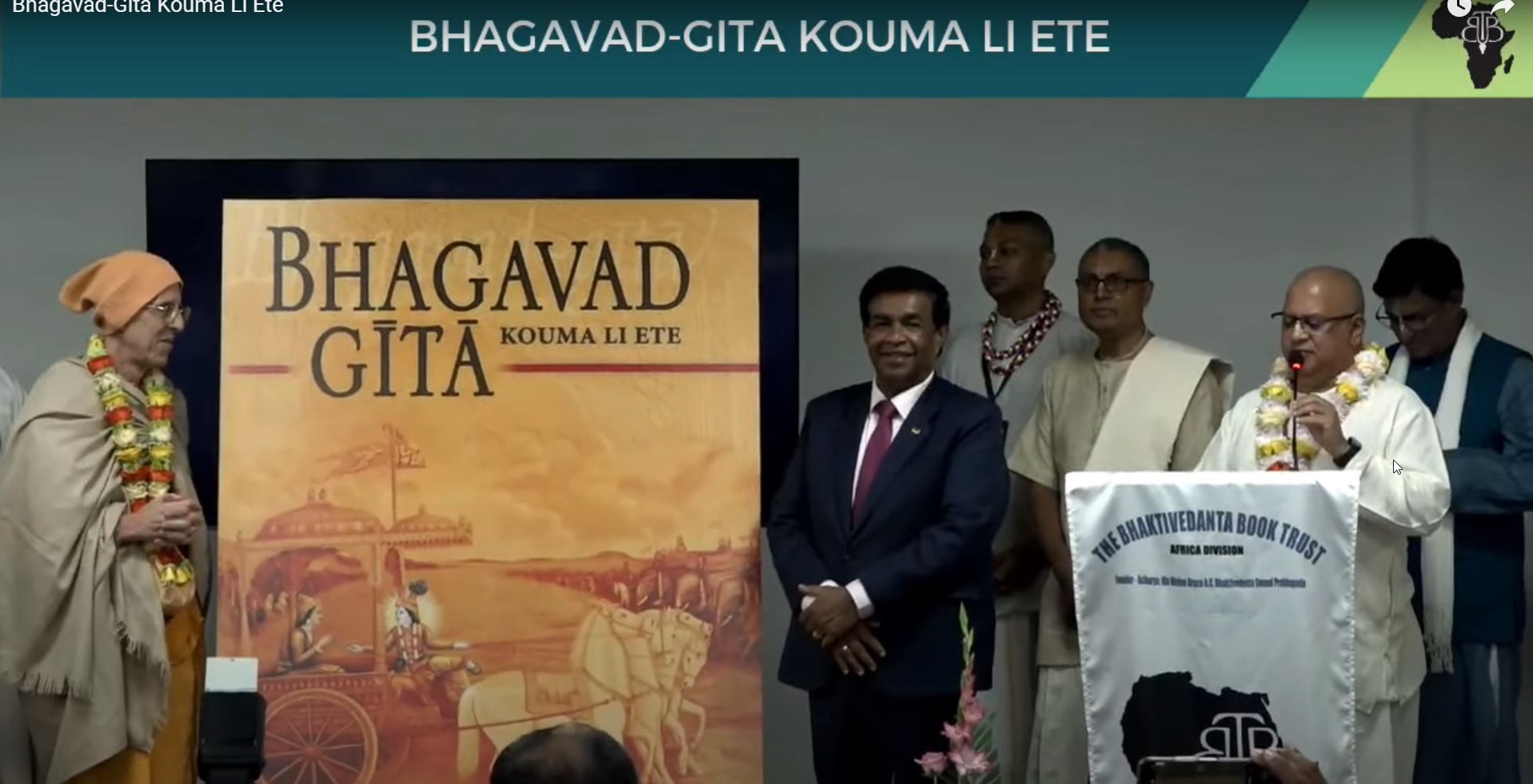Five Years, Eleven Months and a Lifetime of Unexpected Love
By Aditya Varna dasi | Jun 08, 2021

Through her sharp camera lens and elegant prose, Visakha Dasi takes us on a roller coaster ride through the near six years, of her life from 1971 to 1977. Something extraordinary happened to this self-confessed proud atheist, a Darwinian, which was as she points out the intellectually held position of the day. She traveled to India, camera in tow to meet up with her boyfriend and very much in the mood of an Anthropologist, to capture a culture diametrically opposed to the American middle-class environment of her upbringing. She encountered His Divine Grace A. C Bhaktivedanta Swami Prabhupada whose movement the Hare Krishna Movement would go on to take the world by storm. Visakha captures this movement in its embryonic stage as expertly through her camera lens as though her writing and we are giving a ringside seat in the arena of a great spiritual awakening of this period of turmoil in world history. She becomes an initiate of the founder, one of his earliest female disciples. How did this saintly old man so melt her heart and put her atheistic mind in the conflict that all these years later she is still heartbroken by his earthly absence: “It is as if my life froze.”
In his classic study, The True Believer, Eric Hoffer outlines the nature of mass movements and what they offer: The adherents of a rising movement have a strong sense of liberation…this sense of liberation comes from having escaped the burdens, fears and hopelessness of an a untenable individual existence.
The author in her youth felt the scorn and contempt from classmates who were not subtle in showing their disapproval of her unorthodox ways and appearance, arriving in school in her hiking boots. To those of us who never fit in or conformed, this deeply resonates…”Under long fluorescent tubes in the morose tunnel line hallways I noticed other girls wear fairy-like summer flip-flops with dainty golden straps and thin souls…clearly I wasn’t one of them, swift scornful glances at me were promptly foiled by young hears with Marilyn Monroe hairdos. I was in a blizzard of contempt.” As the ancient saying goes, however – when sleeping women awake, mountains will move.
The famous American Transcendentalists, Henry Thoreau, and Ralph Waldo Emerson also felt discontent with their materialist way of life and of America’s dedication to Capitalism. After all President Wilson famously declared. The business of America is business. These Transcendentalists however longed for some deeper meaning to their lives, they moved to the country, communed in nature, and read literature like The Bhagavata Gita.
Their back to nature movement never took hold, however. The New England soil was not yet fertile enough it seems. God is in charge of timing however and in the revolutionary period of the 1960s America and Europe, the time was right. The youth were discontented, bored with materialism, and into their life came A C Bhaktivedanta Swami, who offered them hope, freedom, and liberation. They found him and his movement irresistible. First of all understand the mantra, Hare Krishna, Hare Krishna, O Krishna, O the energy of Krishna, please accept me, This is the prayer now I am engaged in this material service, kindly accept me in Your service, His Divine Grace instructed his followers, and they started to chant.
The transition to a new way of life however is not without its difficulties. In her classic Study The Nature of Mankind’s Spiritual Development, English Anglican writer Evelyn Underhill outlines the pilgrim’s path which follows the same trajectory in all religions…this change of life and turning of energy from the old and easy channels to the new is often a stormy matter. As the pilgrim comes to realize the great gulf there exists between themselves and the Supreme, they become sensitive to the dark elements and imperfections in their own character. This is the experience as reported by all those brave souls who undertake this formidable journey; birth pangs must be endured in the spiritual as well as the material world, adequate training must always hurt the athlete.
Running parallel to the seismic events that were taken place in the world and in the birth of this new movement were Visakha’s own spiritual struggles, which she shares with us in often alarming frankness. The report of the death by suicide of her atheistic mother is gut-wrenching as she describes the emptiness of her home on return to America for the funeral- I walked through the still rooms, cautiously, and was grateful there was no brown bottle, and no blood. “But some vast emptiness had taken over the place…sadness invaded me a sadness so profound it seemed to seep in from the stagnant air.”
A return to assisting her spiritual master in his mission to spread Krishna Consciousness however keep her on track and as one of the main photographers, she had up close and personal access to His Divine Grace. Daily, using common sense, logic, humor, and knowledge Prabhupada whittled away at the tethers to and faith in materialistic values and goals.
The Narcissistic Age which the Twentieth Century has ushered in has a hard time understanding the concept of humility. Coming from the Latin word humillis meaning grounded or from the earth. the saints in all religions point out to us the necessity of cultivating this quality. It is pleasing to God when we are humble, meek, and gentle with others, taking the lowly position. In response the pilgrim feels more and more freedom; God’s presence in Prabhupada consciousness allowed him to move in the world, untouched by it and fearless; it allowed him to be in and to relish the beauty of each moment.
In The Twenty-First Century murder, rioting, looting and the burning of church buildings are a common feature in cities across the world. His Divine Grace A C Bhaktivedanta predicted his movement would save civilization in its darkest hour. That hour it seems is upon us. His essential simple and sublime message that we are all Krishna children, He loves us, we must call out His name with love, and follow His instructions and He promises He will take us back to His Kingdom. His Divine Grace`s biography has been written and his disciples continue to speak and write of his greatness and of the legacy he has left us. Reading this book however brings to mind the American writer Harriet Monroe, on continually reading her favorite poem- I have been reminded of a visit to the Rembrandt galleries in Petrograd, wherein two hundred or more canvases one could study the great painter in all his moods and search his genius through days.
Part of that genius was the equality of opportunity Srila Prabhupada offered his female disciples. He admonished his male disciples when they discriminated against them; You dance, she dances, you sing, she sings, you cook, she cooks, there is no difference, you are the same in Krishna’s eyes. His deep humility and his own dedication and love for his own spiritual master won over his disciples. The guru-disciple relationship is one of mutual service and love Visahaka came to realize, one of intense affection and is not the proper subject of arguments. Far from denying this world of which the Hare Krishna devotes are often accused, they but deny the narrow artificial world of self. Far from exploiting him, humility made Srila Prabhupada powerful and free. Lost to self and found in Thee, find we sweet humility, following in His Divine Graces footsteps and following those who follow in his footsteps is our great task. They bear witness to the practical qualities of living a life of transcendence and the life-enhancing power of the love of God once we open up to receive it.



